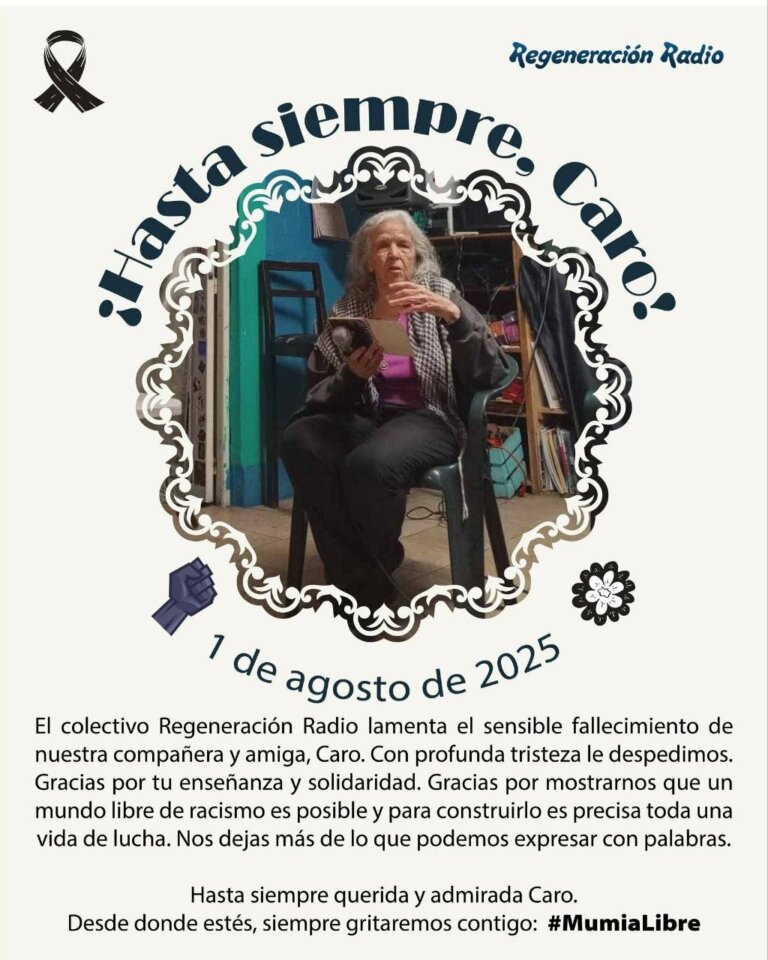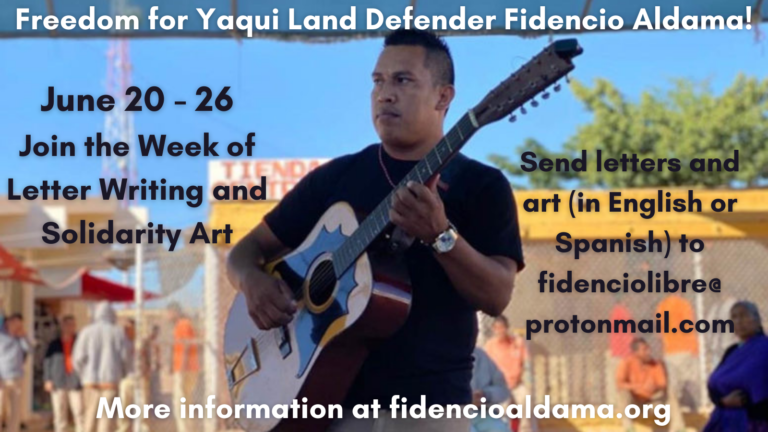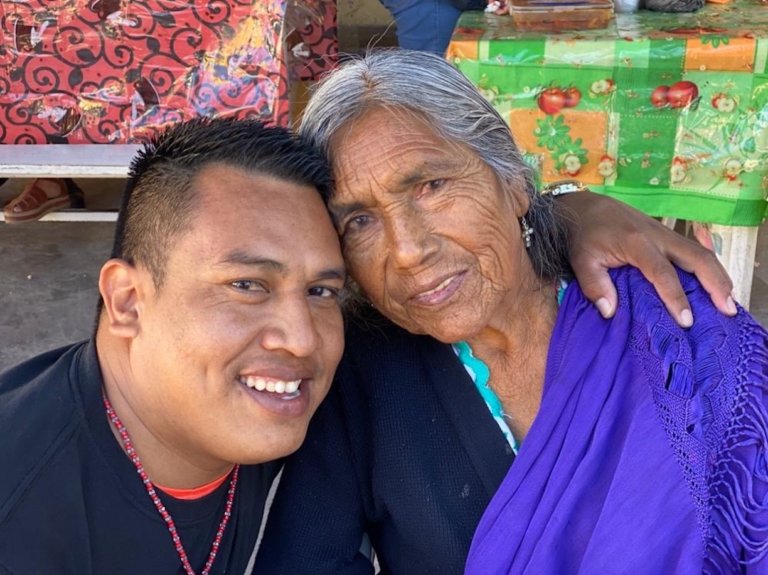Interview with Oaxacan activist and journalist Doctora Berta
Since her return to Oaxaca from exile, Doctora Berta has held open meetings with people who participated in the 2006 social movement to make a collective analysis of the APPO and its possible directions. In an interview, she spoke about the impotence and discouragement that she’s observed in the meetings, especially with regards to perspectives on the APPO and its reorganization.
What’s your legal situation now?
Last week they gave me a definitive protective writ, but it really doesn’t guarantee anything because they can redefine the charges against me, in other words, just change the names and get another arrest warrant.
Video by mano vuelta (November 25, 2008)
What’s your view of the social movement since you’ve come back to Oaxaca?
Out of the thousands who participated in 2006, only about 10% are still active. That’s understandable. Why? It’s simple. First of all, fear. Acts of repression and intimidation are still common even though they’re not quite the same as in 2006 and 2007. They’ve heavily armed the police who are on patrol everywhere. It’s as though we’re still living in a state of siege. And then there’s the disillusionment. The fact that such an enormous mobilization occurred and that the movement lasted for so many months, yet wasn’t able to overthrow the mal-governor even with all our force, has been a tremendous letdown, so people say “See? We didn’t achieve anything. All we got were prisoners, death, and people who always want to get something out of all this.” On top of that, there’s a lack of trust. People look at the level of disorganization and the fact that most aren’t responding like they used to. A change is going to take time and this implies constant work in the communities, neighborhoods and barrios in order to regain credibility and build trust.
What direction should the social movement take? I mean, how should it reorganize itself?
The reality is that it has to start from the ground up, not from the top down. It has to come from the neighborhoods, the barrios, the communities. Each neighborhood has its own problems, so the work it takes on must be based on its own needs. There’s a lot of distrust towards a lot of the political organizations, and that makes people drop out of them, so it’s the people themselves that have to begin to organize right where they live.
What’s your perception of the people you’ve been meeting with every Sunday?
They feel impotent and disillusioned.
Is it possible to leave this disappointment behind and build something again?
I believe it is, but to be perfectly honest, and many perceive this, people are deciding who’s honest and who isn’t. It’s like when somebody says, “I’m a Zapatista,” and then wants to start a political party. This goes against what being a Zapatista means. A problem you see all over the world is that people tend to seek out a boss, a leader, a director, and that’s not where it’s at. We’re tired of saying that the movement is grassroots only for many comrades to then go around looking for a leader when it comes time to do something. That’s not the direction we should take. On Sundays, we’ve talked about our feelings because we can’t forget that most of us who came to the movement in 2006, came because of what we felt. Our hearts were in it. We didn’t even think about it. Discouragement and fear are feelings that we have to try to bring out in the open.
How can we get people who participated in 2006 and then drifted away, disillusioned, to come back to the movement and achieve some kind of self-representation, as in the recent APPO Congress, for example?
First, they have to get organized in their own neighborhoods and barrios, in their nucleus. That’s where trust must be rebuilt. Once this is done, they can decide how to participate. It’s up to them. Nobody from outside has to tell them what to do. If people decide to send a representative, they’ll do it, but people from each place will determine how to make their own decisions. The first thing is to build trust and credibility among themselves. That’s something that’s been broken.
What are the options right now for a social change to occur in the country?
I’ve always thought that the changes happen at the ground level, not just beginning at the bottom and then made at the top, and that it’s the people as a unified group who have to decide. Just like our indigenous peoples achieved respect for their right to traditional practices and customs and their right to choose their authorities in an Assembly, each community and each barrio has to decide, but the basis is organization, discipline, and unity. If there’s a community or barrio that says, “We choose the electoral route,” that’s their decision. But they have to decide for themselves because each place is different, and the circumstances are different.
Doctora Berta holds meetings for analyzing the APPO every Sunday at noon at one side of the Zócalo in the City of Oaxaca. She also hosts the program “Of Fictions and Realities” from Monday to Friday at 7 pm.
—
revolucionemosoaxaca.org/entrevista/la-appo-debe-reconstruir-la-confianza-y-la-credibilidad-doctora-berta.html



